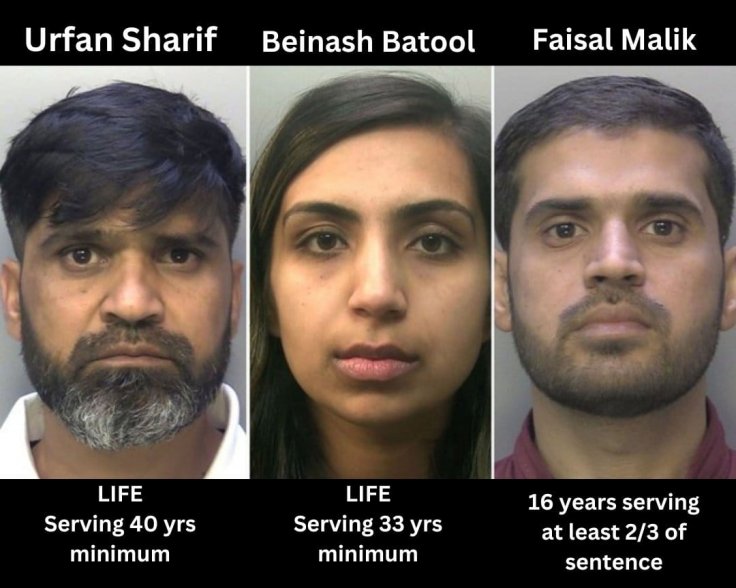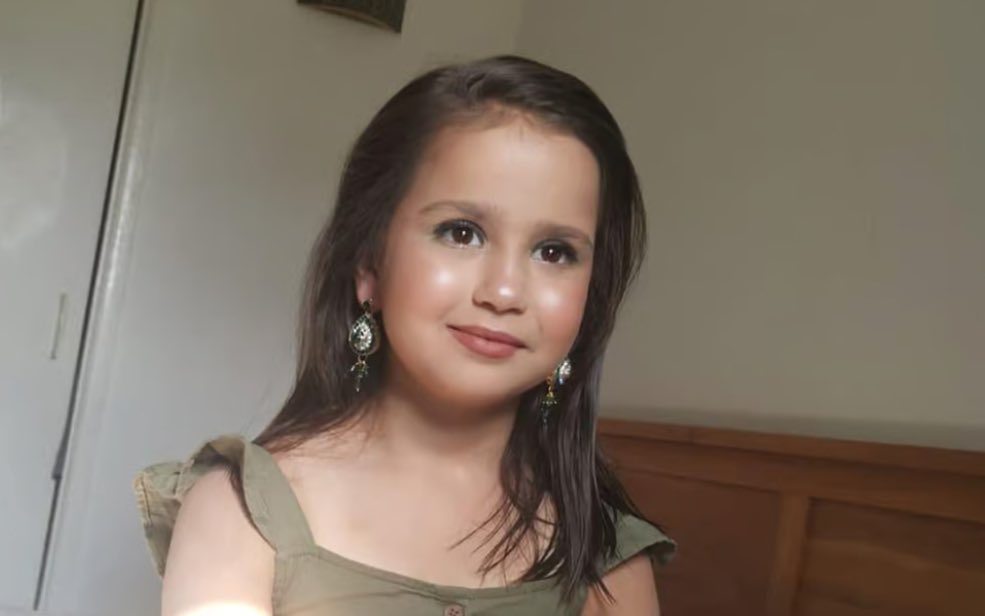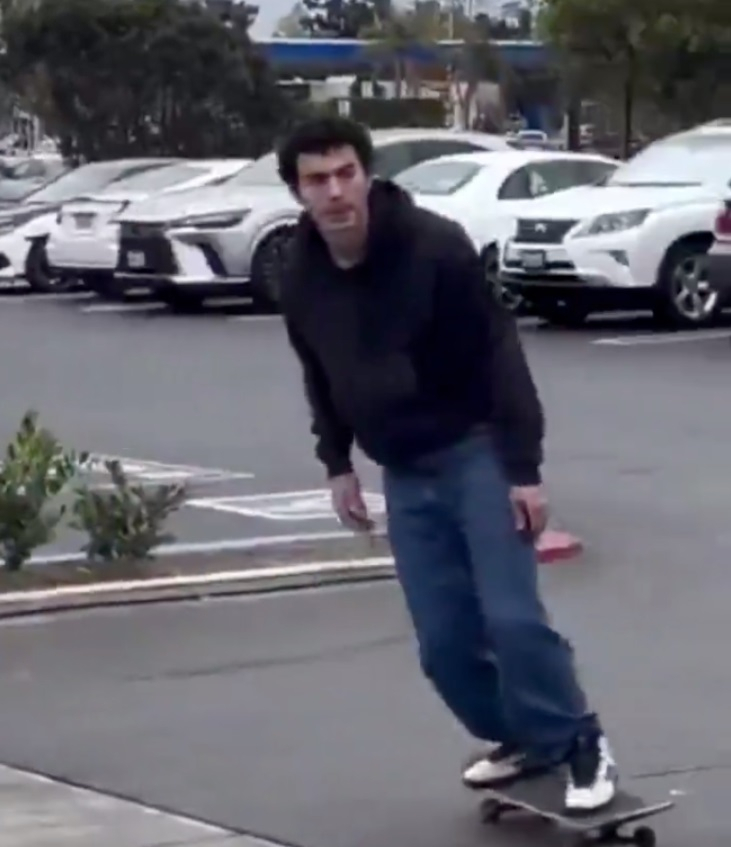In a harrowing case that shocked the UK, Sara Sharif’s father, stepmother, and uncle have received lengthy prison sentences for their roles in her tragic death. Urfan Sharif, 42, and Beinash Batool, 30, were sentenced to life imprisonment for murder, with minimum terms of 40 and 33 years respectively. Sara’s uncle, Faisal Malik, 29, received 16 years for causing or allowing the death of a child.
X
Justice John Cavanagh, delivering the verdict, described the abuse Sara suffered as “torture.” He noted the cruelty inflicted upon the 10-year-old, stating, “The degree of cruelty is almost inconceivable. None of you have shown a shred of true remorse.”
The courtroom witnessed mixed emotions. Urfan Sharif kept his gaze lowered, showing no reaction. Batool appeared close to tears, while Malik sat with his head bowed. Brief clapping erupted from the public gallery as the sentences were read, prompting the judge to call for silence.

Sara’s death, described as the result of years of neglect and violence, occurred on August 10, 2023. Police discovered her lifeless body under a blanket in a bunk bed at the family’s home in Surrey. The autopsy revealed more than 70 injuries, including bruises, burns, fractures, and bite marks. Many injuries were old, highlighting prolonged abuse.
After Sara’s death, Sharif, Batool, and Malik fled to Pakistan. In a call to UK police, Sharif admitted to having “punished” Sara, saying he “beat her up too much” but did not intend to kill her. Prosecutors characterized their actions as a “campaign of abuse” that ended in murder.
The three returned to the UK over a month later and were arrested. The trial at the Central Criminal Court uncovered horrifying details of Sara’s suffering. It also raised concerns about potential failures by social services and authorities to intervene and protect the child.
Justice Cavanagh emphasized the prolonged nature of Sara’s ordeal, calling it a “calculated, cruel campaign of abuse.” The defendants showed little to no remorse throughout the trial, deepening public outrage over the case.
The sentences mark the end of a deeply disturbing chapter but leave lingering questions about how such abuse could go unnoticed. Social services and child protection authorities face scrutiny for their perceived inaction, with demands for reforms to prevent similar tragedies.
Sara’s tragic death remains a grim reminder of the importance of safeguarding vulnerable children. The case has reignited debates on child protection policies, with advocates urging more robust systems to identify and address abuse early.
The defendants were immediately escorted to cells to begin their prison terms. As the public processes the grim details, Sara’s story continues to resonate as a call to action for greater vigilance and accountability.
This case serves as a stark reminder of the consequences of prolonged abuse and the need for systemic change to ensure the safety of at-risk children.





